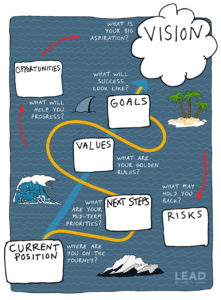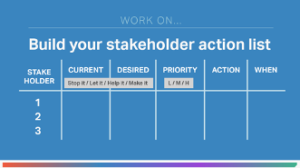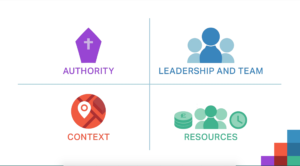Use this page as a one-stop shop, updated with all you need to know throughout the course.
Meet the team
Here are the people you are likely to meet while on the Plant Course. There will also be a number of experts including people who have previously planted, lending their learning and expertise throughout the course.
Over the course, you and your team will work together to have a clear and robust sense of:
- What your Plant is about (vision and values)
- How you will deliver this on the ground (how to reach new people)
Seven Thursday morning sessions starting at 9.15 am for coffee and finishing at 1.30 pm. Each week there will be preparation activities and coursework. Be prepared to spend around 30 hours across the sessions, preparation and coursework over the seven weeks.
| 18 April 2024 | Planning |
| 25 April 2024 | Growing |
| 2 May 2024 | Going |
| 9 May 2024 | Leading |
| 16 May 2024 | Resourcing |
| 23 May 2024 | Establishing |
| 30 May 2024 | No Sessions |
| 6 June 2024 | Presenting |
Preparation and Coursework
- Before each session there will be some preparation work to do – this will be watching the session videos (this is essential)
- During each session we will be doing group work and exercises
- Following each session there will be some coursework to complete that helps you to consolidate and put-in-practice the teaching you’ve received
- In the final week each team will be asked to give a 15-minute presentation on your Plant. All of the coursework will feed into this
Week 1: Planning – 18 April
Aim: To grasp the scope of church planting, including why and how to use strategic planning for successful church planting
How ready are you?
As part of the preparation for the Plant Course, you will have begun to look at the authority you are under, who is in your team, more about your context and what resources you have and need.
Work with your team on the details of your quadrant, along with agreeing your current percentage-readiness.
- Who is on your team? What kind of plant is it?
- When you are planting? Where are you planting?
- How are you going to do it? … and how Ready are you? (in %)
Church planting, like life, isn’t a straight line from where you are now to your vision. Values will determine your vision and what you do and don’t do.
Bishop Oscar Muriu talks about his planting journeys and the importance of prayer along the way.
Let us know
Please let Helen know who you would like to invite to your presentation on week 7 (helen.ghebrezadick@ccx.org.uk).
Leaders’ Map

Fill out as much of your Leaders’ Map as you can, paying special attention to the values and vision of your plant. Spend unhurried time reflecting as a team on the values. Dig deeper – why do these things matter to you so much?
Things to think about
- Doing the maths In week 4 we will be looking at the budget for your church plant. Here’s a link to a Budget Template.xls, we would like you to think about this over the coming weeks and draw together information to begin to populate it.
- One size does not fit all In week 3 we will discuss more about your context and what that means for your church plant. Over the coming weeks we would encourage you to start to research your context.
Week 2: Growing - 25 April
Aim: To develop your strategic planting plan with a growth strategy; with emphasis on attractional models of church
Elevator Pitch
Prepare a 40 second ‘elevator pitch’ about your plant. Decide who will do this.
The scenario: You meet a Christian friend you have not seen for some time, who lives in the area into which you are going to plant a church. They ask you what you are doing here. In 40 seconds, explain the vision for the plant.
Evangelisation is a key element to any church planting strategy. The Great Commission, recent research about evangelism in the UK church, and some practical considerations will help you in putting together a workable and effective evangelistic strategy in your own context.
Understanding and working with stakeholders who have influence over your plans is a vital step in your planting journey.
What are the questions to ask as you plan your timeline and what you will do at each stage.
Do the following with your team
- Develop your timeline
- As a team, complete your stakeholder list, make plans, including dates and who will contact whom.

Cultural differences between churches of different sizes are greater than those between similar-sized churches of different denominations. Leaders need to change their leadership style, governance, operating model, church culture, areas of expertise, leadership team and involvement in the church in order to transition between different sizes.
Week 3: Going – 2 May
Aim: To explore missional strategies using missional community, evangelism, mission, and social transformation ministry
Elevator Pitch
Prepare a 45-second ‘elevator pitch’. Decide who will do this.
Scenario: You are now in your new context and meeting with a local community scheme leader (a Scout Leader maybe) They’re not a Christian. How do you explain what’s in this for them and specifically the community?
Understanding your context will have direct impact on your planting plans.
Re-discover the roots of why we are involved in church planting and understanding contextual movements and multiplication approaches. Look at basic missiology and ways of understanding our context, drawing on the work of Fresh Expressions, Missional Communities and Disciple-Making Movement Pioneers.
Reflect
Reflect on these questions:
- What is your church plant all about?
- How are you going to deliver this in your context?
- How are you going to think differently?
- Continue with listening questions
Resource: Five Fold Ministry Survey – a snapshot of your Base and Phase ministry gifts as articulated in Ephesians 4 (Apostle, Prophet, Teacher, Evangelist, Pastor) as put together by Mike Breen and 3DM.
This session looks at how the church is of, not just with, or for the poor, and how the church can respond to practical, tangible needs and how the church can challenge structural injustice.
Week 4: Leading – 9 May
Aim: To understand your strengths and weaknesses as a leader and how to develop a team.
Elevator Pitch
Prepare a 2-minute ‘elevator pitch’. Decide who will do this.
Scenario: Why are you involved in this church plant? Whatever role you have within the team, you have chosen to join in with what God is doing. Why? What is your passion for this? Why is this your heartbeat? Share with the rest of the team in two minutes what is driving you in the decision to be part of this plant journey.
Think about
- This is a more personal pitch than the others
- Give each individual time to think through what drives them before they share
- Is the vision of the plant aligned with your passion?
Understand your strengths and weaknesses as a leader as we learn to check our own internal systems.
Understand your strengths and weaknesses as a leader looking at the theory of true self and false self and how this applies to your planting journey.
Building a team is key to the journey of any plant, covering the roles you might consider in your team plus how to recruit, select, develop and motivate them.
Reflect
- Understand your strengths and weaknesses as a leader and how conflict will be part of any planting journey.
- How are you going to build your team?
Resource: Five Fold Ministry Survey – a snapshot of your Base and Phase ministry gifts as articulated in Ephesians 4 (Apostle, Prophet, Teacher, Evangelist, Pastor) as put together by Mike Breen and 3DM.
Your Mentor
- Find / book in with mentor
Presentation
As a team, start writing your presentation. Work out who (how many) will make the presentation, who will prepare the slides, etc.
A Place to Belong: A guide to church accessibility
A guide to access, inclusion and welcome in our churches, especially in relation to people with disabilities, mental health challenges, or on the autism spectrum.
Week 5: Resourcing – 16 May
Aim: To look at resources needed for a plant particularly around finance and communication
Elevator Pitch
Prepare a one-minute ‘elevator pitch’. Decide who will do this.
Scenario: You have a meeting with your bishop (or equivalent). You have asked them to speak at your launch event. They have agreed and want to know what points you would like them to make.
All plants have some finance and budgeting to manage as they launch and grow.
As a team, fill in as much of the budget template as you can. Prepare specific questions to ask the experts.
- Write down your financial relationship with your sending church. Communicate your gratitude to them, and also be clear about the financial relationship going forward.
How to flourish through engaging well with the local clergy and senior clergy in your diocese along with your central diocesan teams (or equivalent).
Think as a team about how you will:
- Keep in touch with your bishop and senior staff (or alternatives)
- Liaise well with other churches and leaders in your area
- Make safeguarding a priority, and keep on top of it
All church planters, especially the lead planter, need to engage in fundraising.
Reflect
- Finance, budgets and fundraising
- Research possible trusts and potential donors. Make concrete plans for making applications. Who will do this and when? Who will maintain the relationships?
- Write a letter to a potential donor explaining the vision for the plant, laying out the financial ask, and requesting to meet with them. You may assume that this person is a Christian, but also assume that you do not know them.
- Complete your communications plan
- How are you going to function well as you start your new worshipping community?
Presentation
As a team, look through the presentation outline and begin thinking about what is going to go into yours.
Week 6: Establishing – 23 May
Aim: To understand the structures you may have to work within, as well as encouragement from examples
Discover more about the different models for integrating families and children into the heart of your church plant.
Week 7: Presenting – 6 June
Aim: To present the plans for all the church plants to a panel
Presentation
Complete your presentation, and send it through to Helen ahead of time helen.ghebrezadick@ccx.org.uk
Each team will have 15 minutes to present, and then 15 minutes to get feedback from the panel. There will be prayer for each team and church plant.
Some tips:
- The time will go much more quickly than you think. Script accurately and practice beforehand. Most teams spend too much time on the early slides, and then have to rush the end. The panel want to hear you address the two big questions – what is your plant all about, and how will you deliver this. Focus on your vision, who you are trying to reach and why, how you will grow, then your plans around these things.
- Think carefully about who will present; will it be the leader, the whole team, a couple? Be careful that if you go for multiple voices, then time can get squeezed.
- Do be yourselves – the panel will want to hear from you. Humour, music, creativity – all are welcomed.
- Remember that the panel are on your side. They are all committed to church planting and want to help you and your plant succeed.




